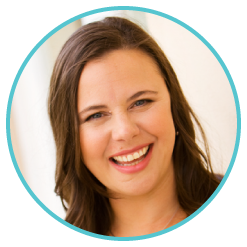Having an ideal customer profile or Avatar is really important. But too often they’re full of irrelevant information, rather than a useful tool for deeply understanding what your audience needs and how you can help them. How does yours rate?
So you’ve completed your Ideal Customer Profile (or Avatar) and you know all about these wonderful people you’re wanting to connect with through your marketing – age, sex, their level of education, where they shop, what they read, what social networks they hang out on, their shoe size…
But do you REALLY know them? And how can all this information help you build the real “connection” with your audience that your business needs for success?
The problem with most standard models for creating Customer Avatars is that they weren’t designed for small businesses like yours.
They were designed for BIG businesses to break a BIG market into smaller, similar groups. This allows big business marketers to target their messages to different segments, speaking in a language that resonates, in places where it is most likely to be heard.
What these types of profiles won’t do is help you find YOUR niche – that magical sweet spot in a crowded market where you can thrive, earning a decent income while doing work that you love.
So put the demographics aside for a moment (although they’re not completely useless) and focus on these three questions first.d
Download your free Ideal Customer Profile worksheet
Who do I wish to serve?
One of the best things about running a small business is that YOU get to call the shots. You don’t have to share your passion, skill, knowledge and experience with everyone. You get decide who you will work with.
What you’re really looking for is the cross-over point where your talents and passions align with what the market most needs and will value sufficiently to pay you what you are worth. In fact, this is one definition of Purpose!
So if you prefer working with people or organisations with particular value systems, ideologies or interests, or in a specialised industry or field, then focus exclusively on them. Once you’ve worked this out, you might find other factors matter far more than demographics… or not!
For example, I am quite happy to work with either men or women as design and website clients, because their requirements and expectations are very similar. The market “segment” for my audience for this type of work is simply that they run a small business and value the skills of a professional enough to allow a sufficient budget. But I much prefer coaching and mentoring women in the 30-55 age range, because I know that for this type of more intimate work, we will form a deeper bond if we share a similar world-view and value system.
If I were to start with a demographic factor such as gender or age, it would eliminate a large percentage of my target market for my hands-on work, reducing my potential audience. On the other hand, I have chosen a particular demographic for my mentoring clients because that is where I feel my work will deliver the best results.
It all boils down to this… CHOOSE your WHO!
What is my Ideal Customer’s key problem/s?
So now you have worked out WHO you wish to work with, you need to understand exactly what problems they have that you can help them solve. What deeper needs or desires do they have? What keeps them awake at night? What matters most to them? What support or help do they really need?
It might surprise you to know that you don’t have to have the solution as a product or service already developed. Again, this is a traditional (and outdated) big business model, where you develop a product and then try to find a market… As Simon Sinek told us ages ago, it’s far more effective to understand your WHY first (and as I’m suggesting here, your WHO as well) and then develop your products or services around these.
By deeply understanding your Ideal Customer and providing a solution that addresses their key problems, you effectively eliminate the competition – because you can customise solutions, adapt quickly, build loyalty, and grow with your customers’ changing needs. Remember, this is THE competitive advantage of small business, and what will allow us to remain successful, even in a marketplace full of competitors.
So spend some time really trying to understand your Ideal Customer. One of the best ways to do this is to actually chat with some of your existing customers about why they chose to work with you or purchase your products. Find out how they felt before you solved their problem, what separates you from the rest of the market, and then, how they feel now that you have solved their problem (this is also a great way to get testimonials, btw!!)
Which leads us onto the final question…
What is my Ideal Customer’s Desired Emotional Response?
Or as we just mentioned, how will they FEEL when you have solved their problem.
Look for deeper emotional responses.
A person may buy a product or service to feel secure and safe, to feel attractive and important, to fit into a particular tribe, to nurture and care for others, to prove their worth… these are all very important human emotions that underlie even the simplest purchases. They are what motivate people to ACT!
Of course, advertisers know this all too well, and have long exploited emotions by playing to people’s fears. But I’d like to think you can also use this knowledge to INSPIRE your Ideal Customers to buy from you – so that they can be their best selves, rather than avoiding their worst nightmares!
After all, in business you’re never really selling your “thing”, you’re actually selling the solution – the feelings your customers will have when their problem is solved.
You certainly want those to be positive!
This article was originally published on Flying Solo, Australia’s micro-business community.

Hi, I'm Cath Connell
Wholehearted Business and Marketing Consultant, and Creator of Wholehearted Marketing
I'm passionate about helping micro and small business owners take a more 'wholehearted' approach, and build a successful business WITHIN a life. Through Wholehearted Marketing, I provide 1:1 consulting and mentoring, training workshops, practical resources and hands-on support. I hope you enjoy reading my posts and find them relevant, helpful and interesting. Feel free to connect with me on Facebook, Instagram or LinkedIn, and make sure you register for your free BIG Marketing Questions Cheat Sheet - it's the perfect tool to get you started!

